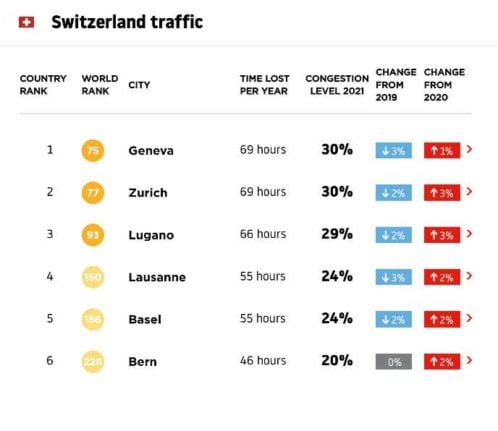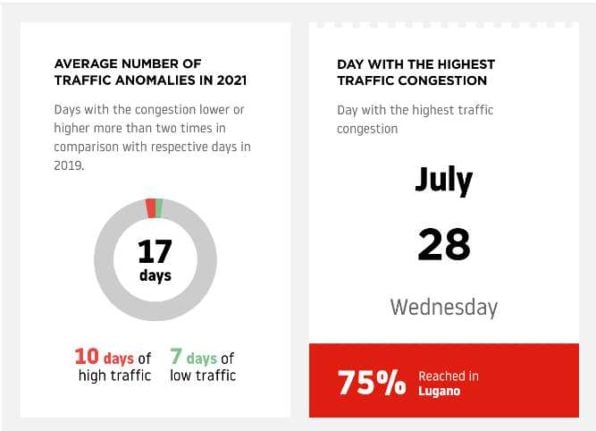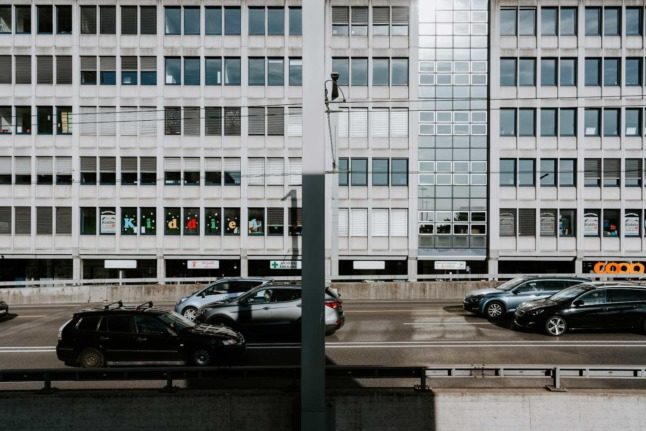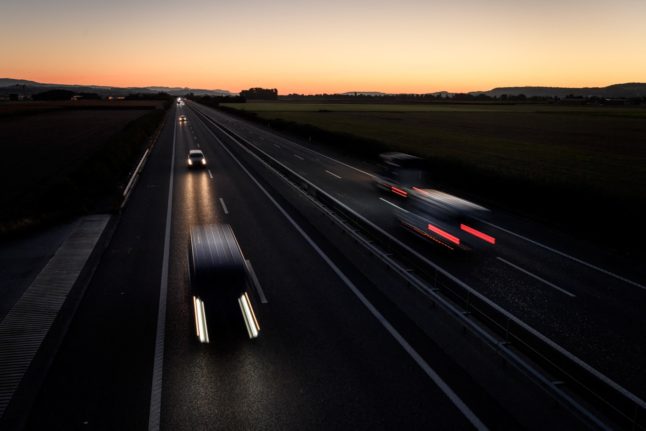TomTom GPS has unveiled its annual statistics for the most congested cities in the world.
The findings cover 404 cities across 58 countries and focus on which urban areas suffer from the most congestion.
READ MORE: Which Swiss canton has the worst drivers?
Where are Switzerland’s cities placed?
Fortunately, Switzerland again ranked relatively low from a global perspective, with no Swiss city in the top 70 internationally.
The findings show that Geneva is the 75th worst city globally in terms of traffic jams, but first in Switzerland.
Drivers in the western Swiss city lose 69 hours each year stuck in bottlenecks.
Zurich follows closely in the 77th place and Lugano in the 93rd.
This TomTom chart shows the congestion level as well as time lost in traffic in Switzerland’s six major cities.

Geneva, Zurich and Lugano are in the second worst category globally, while Lausanne, Basel and Bern are in the third worst.
Tom Tom uses navigation technology to see where people are moving and how fast, thereby giving an indication as to how much time is spent in traffic.
While Geneva drivers may have lost the most time on the whole, the highest congestion was seen in Lugano, where a 75 percent rate was hit in the middle of summer 2021.

Things could be set to get slower in Switzerland, with several Swiss cities planning to cap speed limits at 30km/h.
What are the world’s worst cities and regions for traffic?
The worst city in the world for traffic is the Turkish metropolis of Istanbul, which has an average congestion level of 62 percent.
This is followed by Moscow, Kiev, Bogota and Mumbai.
EXPLAINED: How does roadside assistance work in Switzerland?
There are three Russian cities in the top ten, with Moscow second, St Petersburg seventh and Novosibirsk ninth.
There are two Ukrainian cities – Kiev (third) and Odessa (sixth) – and two Indian cities, Mumbai (fifth) and Bengaluru (tenth).
Western European cities do not feature highly in the list, with Dublin (35th), Palermo (36th) and Paris 37th).
More information about the ranking can be seen here.



 Please whitelist us to continue reading.
Please whitelist us to continue reading.
Member comments